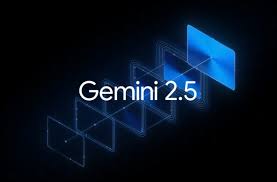OpenAI, which continues to lead the way in artificial intelligence breakthroughs, has unveiled yet another revolutionary development: ChatGPT Agent Mode. This new system represents a real step toward artificial general intelligence. ChatGPT is no longer just a chatbot that responds to simple commands — it has evolved into a digital assistant capable of performing tasks directly on users’ computers. Agent Mode can execute code, organize calendars, and even connect to applications like Gmail and GitHub. This feature is available not only to Pro users but also to Plus and Team users, albeit with certain limitations.
ChatGPT Agent Mode, Developed by AI Giant OpenAI and Capable of Performing Complex Tasks, Has Been Released with Limited Access
According to OpenAI, the core innovation of Agent Mode is that it requires less human intervention to complete tasks. The new system can analyze complex user requests directly through conversation, then autonomously determine and sequence the necessary actions. With this mode, ChatGPT can interact with certain systems, send commands to terminals, and manage processes independently from the user.
Users can now define multi-step and complex tasks, such as:
“Find all the PDF files I sent in the last three months, summarize them, and send them to my manager.”
Thanks to proper integrations and permissions, the system can automatically execute such instructions. These tasks are no longer exclusive to traditional digital assistants — ChatGPT Agent can now handle them as well. With this advanced capability, ChatGPT can generate code, process outputs, and take various actions, automating workflows in real time. This innovation marks the beginning of a new era for how people can leverage technology more efficiently in everyday life.
ChatGPT Agent Mode: A Digital Assistant Capable of Automatically Executing Multi-Step Tasks on Its Own
Agent Mode now acts not just as a responder, but as a digital worker — it can plan, execute, and complete tasks. For example, when a user wants to schedule a calendar event, the Agent doesn’t merely guide them — it accesses the calendar and performs the action itself. These capabilities extend to creating presentations, analyzing documents, or retrieving information from folders.
The system’s advanced capabilities are powered by a sophisticated API and Agent architecture, which breaks tasks into sub-steps and proceeds by managing each step individually. In the complex evaluation known as the “Final Exam of Humanity,” Agent Mode achieved a 41.6% success rate, effectively doubling the performance of previous versions. This clearly demonstrates the system’s elevated capability. For those who can use it, Agent Mode not only saves time but minimizes risk — because tasks previously handled manually by humans are now overseen and executed more securely and efficiently by AI.
Additionally, this new version of ChatGPT can now create presentations autonomously or plan complex task sequences. When a user gives a task definition, the system determines the required steps and carries them out from start to finish — entirely on its own. In this sense, Agent Mode goes far beyond traditional assistant functionality.
OpenAI CEO Sam Altman described this new AI architecture as “a major leap into the future,” noting that while the system is currently being tested with a limited number of users, broader access is planned in the future. At present, some ChatGPT Pro users already have access to these features.
The newly released Agent serves as both a guide and an executor for users. This latest stage in generative AI development brings us one step closer to a future where AI becomes a seamless part of everyday life.





